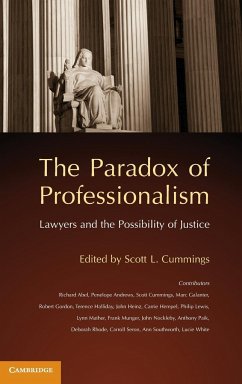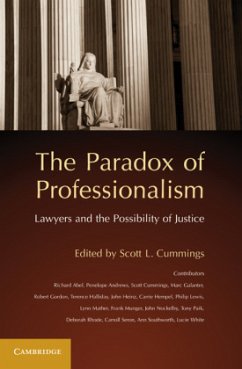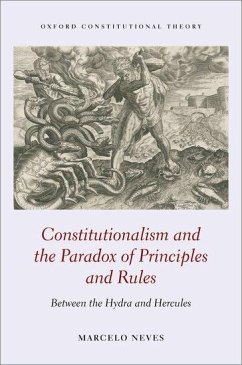
The Paradox of Professionalism
Versandkostenfrei!
Versandfertig in 1-2 Wochen
57,99 €
inkl. MwSt.
Weitere Ausgaben:

PAYBACK Punkte
29 °P sammeln!
This book is about the role of lawyers in constructing a just society. Its central objective is to provide a deeper understanding of the relationship between lawyers' commercial aims and public aspirations. Drawing on interdisciplinary and comparative perspectives, it explores whether lawyers can transcend self-interest to meaningfully contribute to systems of political accountability, ethical advocacy and distributional fairness. Its contributors, some of the world's leading scholars of the legal profession, offer evidence that although justice is possible, it is never complete. Ultimately, h...
This book is about the role of lawyers in constructing a just society. Its central objective is to provide a deeper understanding of the relationship between lawyers' commercial aims and public aspirations. Drawing on interdisciplinary and comparative perspectives, it explores whether lawyers can transcend self-interest to meaningfully contribute to systems of political accountability, ethical advocacy and distributional fairness. Its contributors, some of the world's leading scholars of the legal profession, offer evidence that although justice is possible, it is never complete. Ultimately, how much - and what type of - justice prevails depends on how lawyers respond to, and reshape, the political and economic conditions in which they practise. As the essays demonstrate, the possibility of justice is diminished as lawyers pursue self-regulation in the service of power; it is enhanced when lawyers mobilize - in the political arena, workplace and law school - to contest it.














